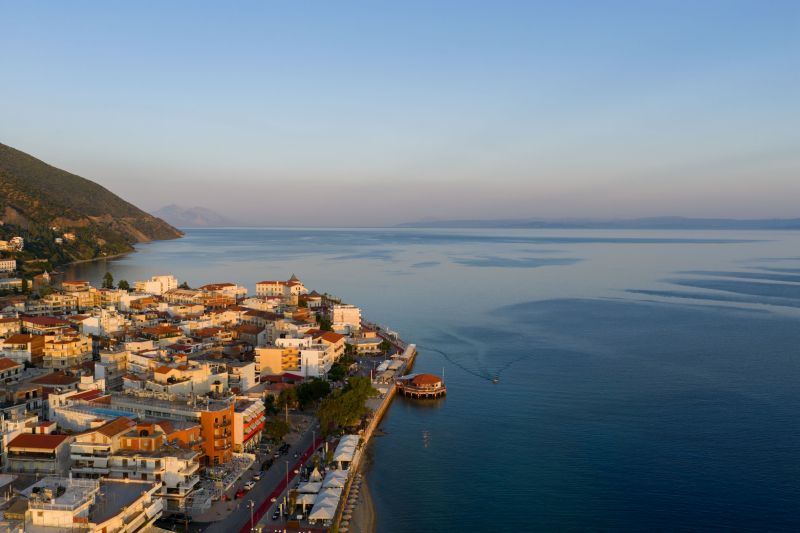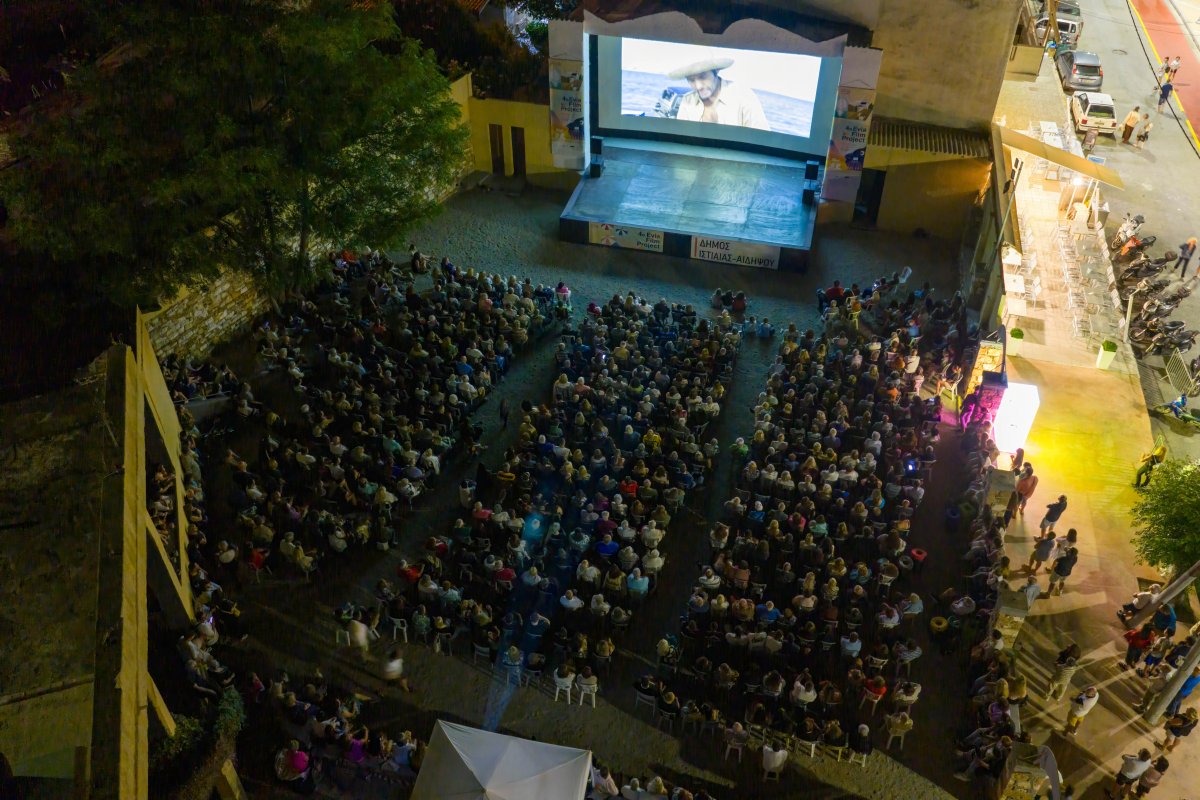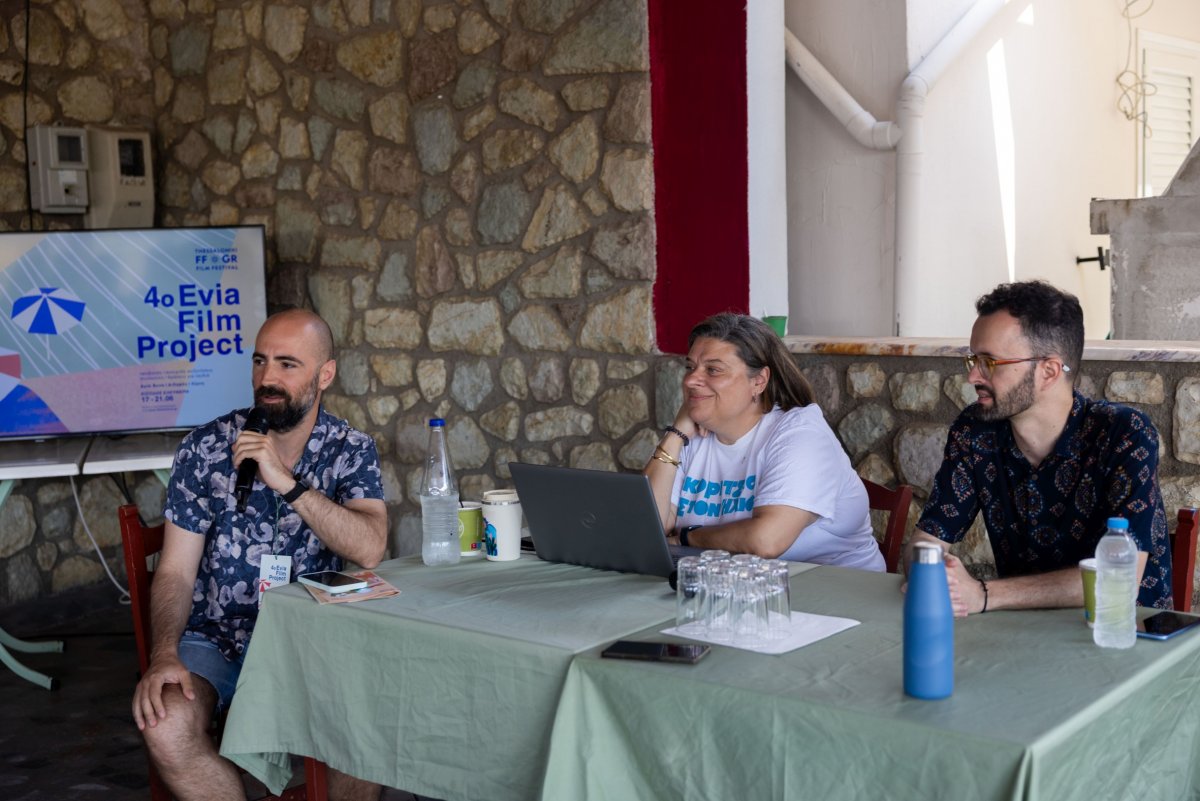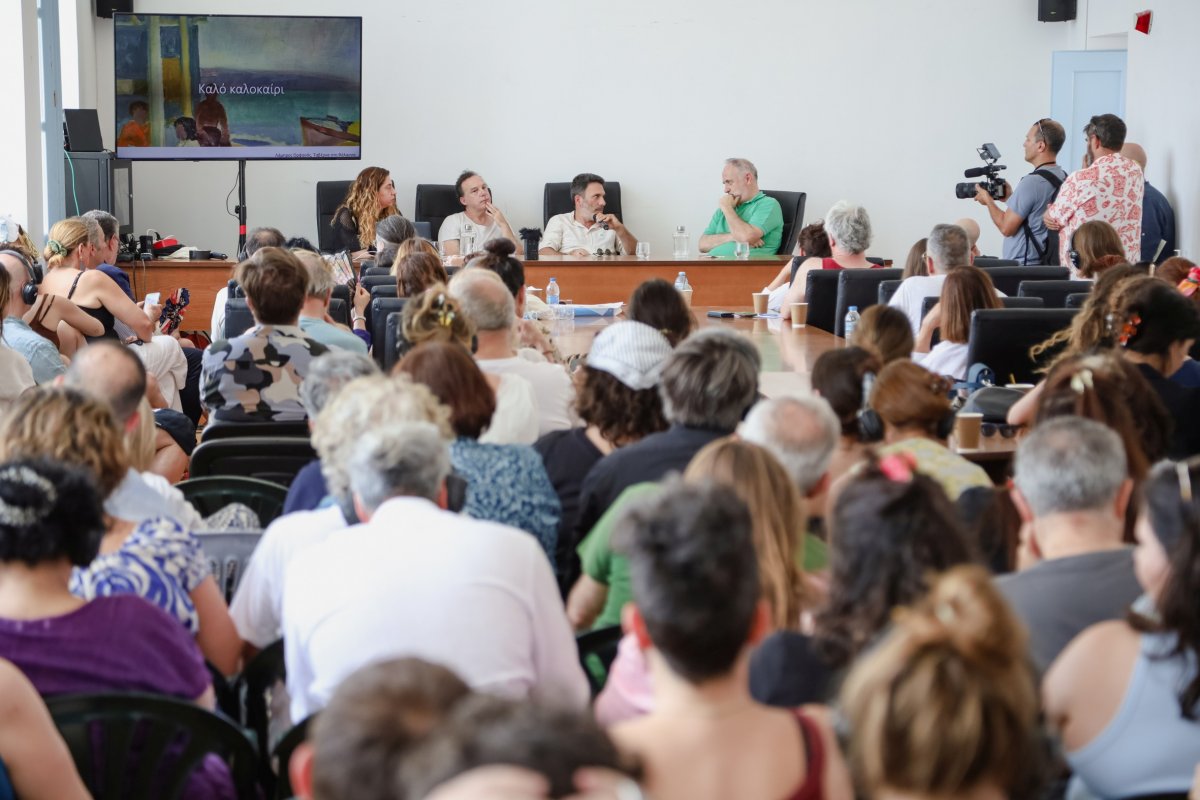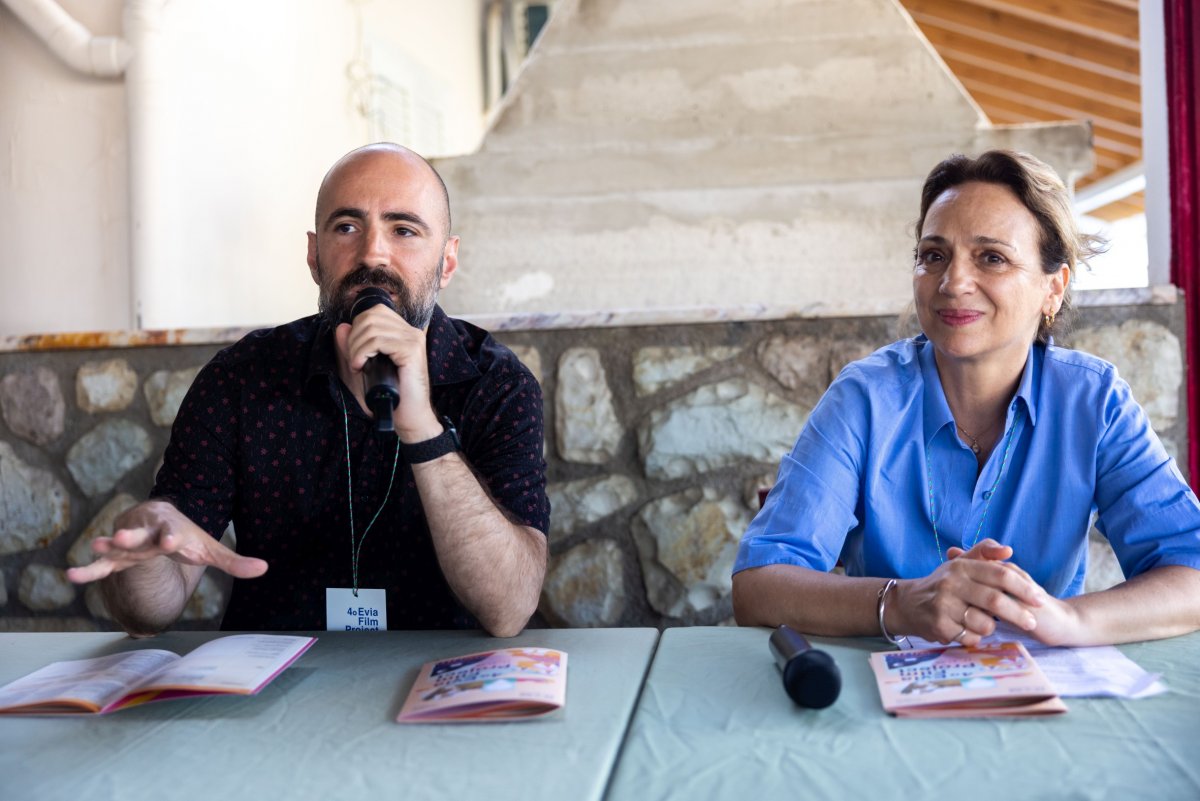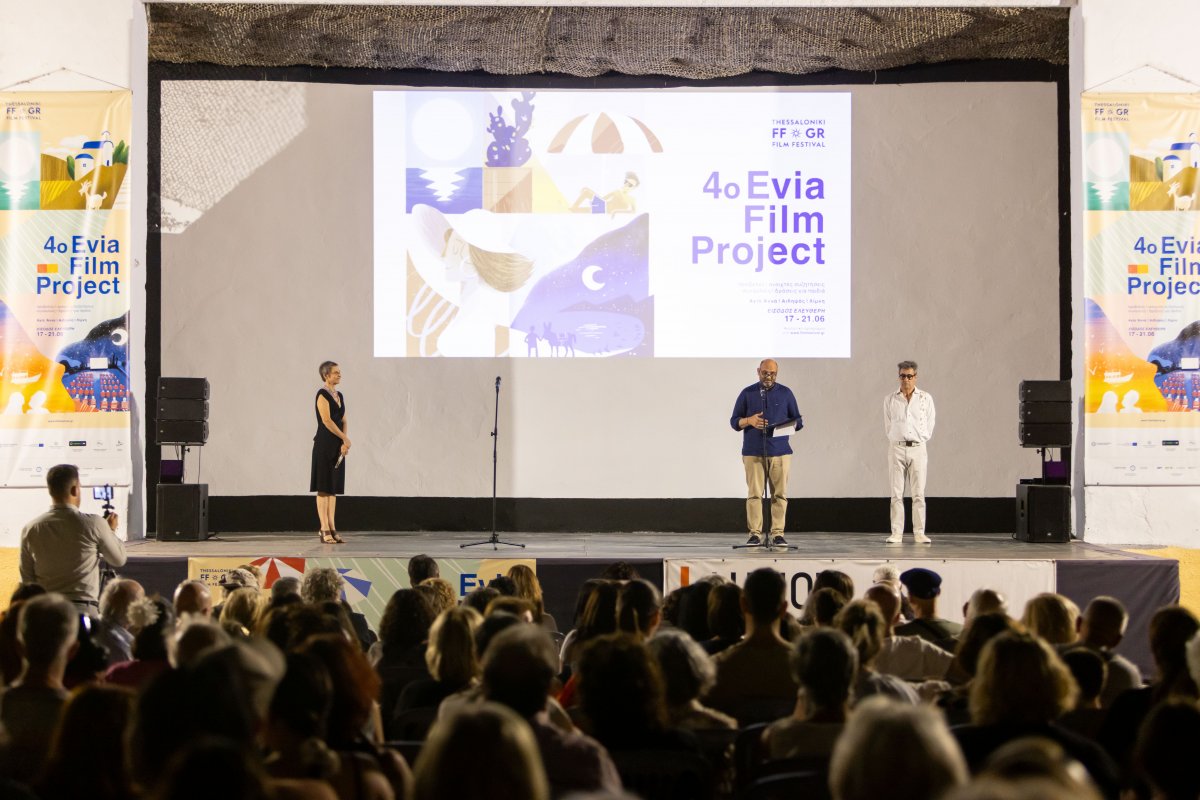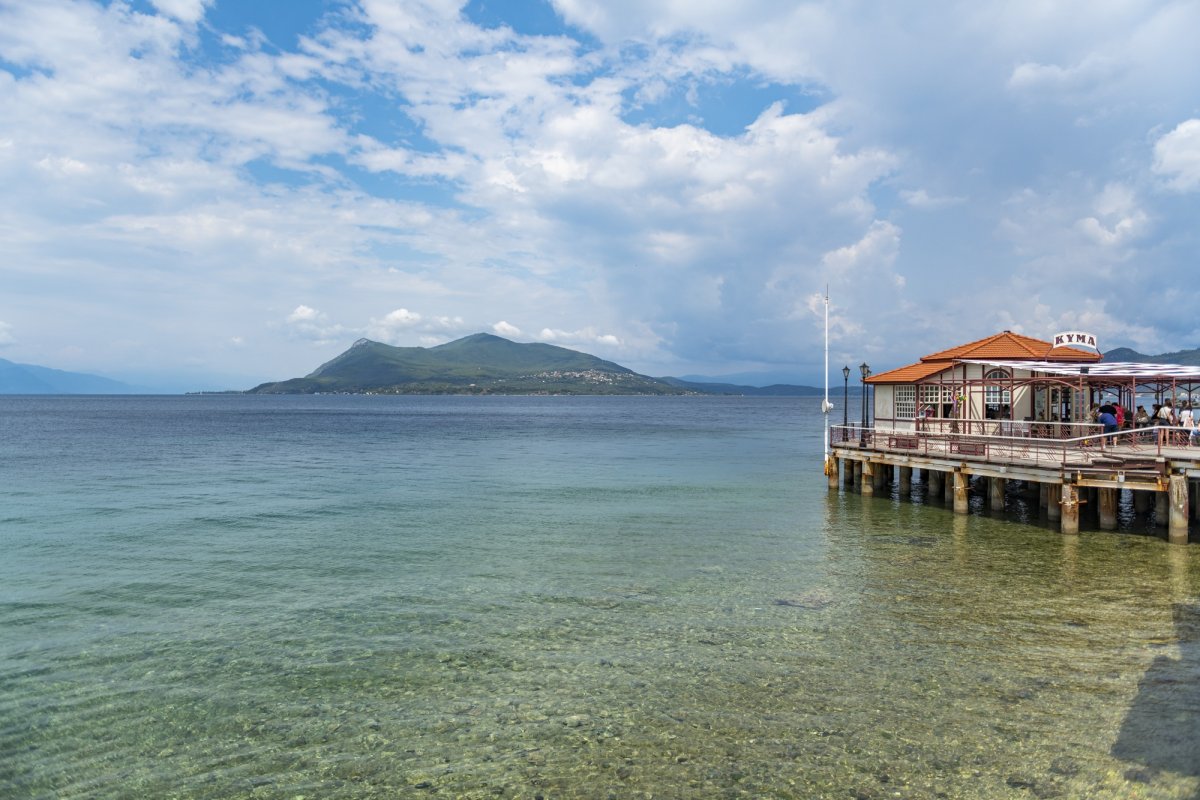A wealthy member of the upper classes and his three sons withdraw to a country villa where they spend their days in complete idleness, having everything done for them by their young and beautiful maid. They surrender to the pleasure of sleep, while idleness permeates the tiny world of these living dead, with the exception of the woman who is the sole representative of positive values, will-power and action. Finally, the youngest son will try to break free...
The idlers of the fertile valley
Οι τεμπέληδες της εύφορης κοιλάδας
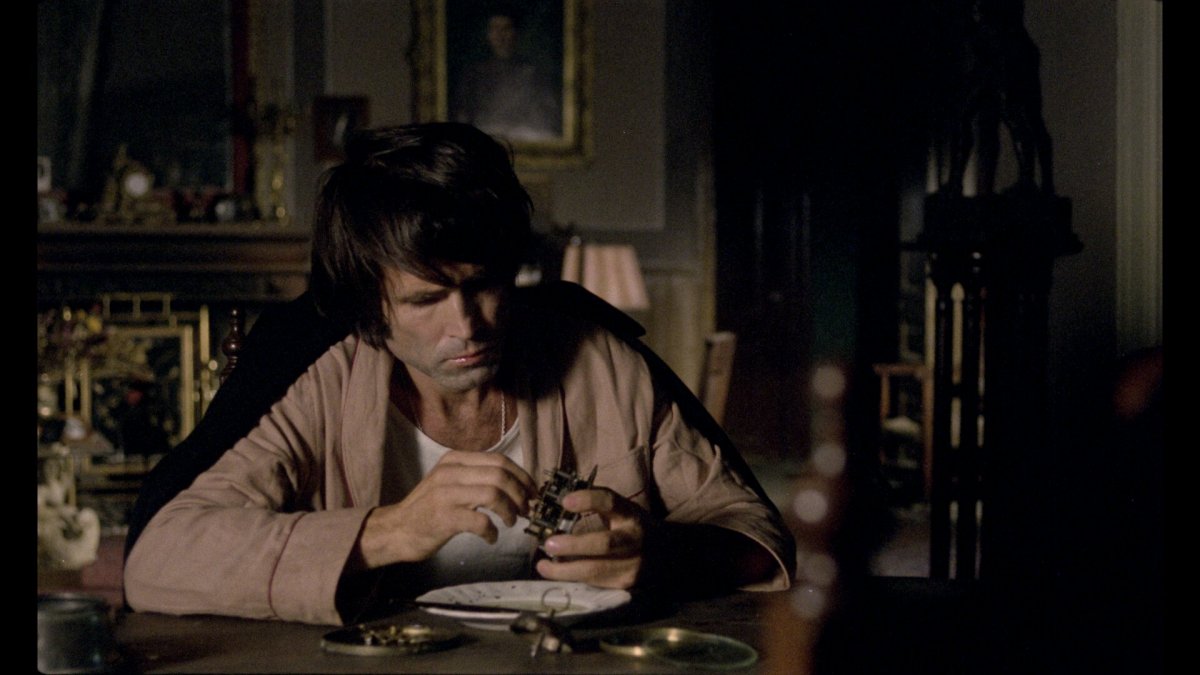
|
No physical screenings scheduled. |
- Direction: Nikos Panayotopoulos
- Script: Nikos Panayotopoulos, from the novel by Albert Cossery
- Cinematography: Andreas Bellis
- Editing: Yorgos Triandafyllou
- Sound: Nikos Achladis
- Music: Gustav Mahler
- Actors: Olga Karlatou, Yorgos Dialegmenos, Nikitas Tsakiroglou, Dimitris Poulikakos, Vassilis Diamandopoulos, Costas Sfikas
- Production: ALIX FILM PRODUCTIONS Ltd.
- Sets: Dionysis Photopoulos
- Format: DCP
- Color: Colour
- Production Country: Greece
- Production Year: 1978
- Duration: 119'
Nikos Panayotopoulos
Nikos Panayotopoulos' first film (The Colours of the Iris) was the most unexpected film to come out of New Greek Cinema, because it appeared to be skirting the urgent demands of that cinema which, at the time, were its relation to the necessity for historical memory (Theo Angelopoulos' Days of '36 and The Travelling Players, and Pantelis Voulgaris' Happy Day), and the radical viewing of Greek society (Angelopoulos' Reconstruction and Voulgaris' The Engagement of Anna). Panayotopoulos offered another dimension, which was equally important. His cinema came from the French nouvelle vague, but not as a conventional, Greek version, an imitation of the freedom and subversion that mainly Godard had formulated, but as a completely new cinematic proposition, with a fully emancipated, personal écriture. For Panayotopoulos had Πand still hasΠ his own luggage; containing, first and foremost, irony, an ingredient which is difficult and volatile in its handling. From the Locarno Film Festival winner The Idlers of the Fertile Valley, with its painfully self-indulgent upper class protagonists, to Melodrama? with its unattainable love and The Woman Who Dreamed, and from Varietés to the anguish of existential emptiness in I Dream of My Friends, the most creative film adaptation of Modern Greek literature (in this case the short story collection by Dimitris Nollas) and the most radical film narrative, Panayotopoulos seems, through his sideways glance and his irony, to be aiming at a detour, but what he always achieves is the mining of the essence of things. This brave confrontation which is not declared before-hand and does not resort to easy solutions but always maintains an apparently aloof attitude which is soon humbled into real and sincere pain, found, in his film Edge of Night, a new direction. Panayotopoulos is constantly renewing his angles; wandering down the most improbable paths of expression; not taking for granted any of his own, hard-earned viewpoints; not hesitating to undermine his own status of an auteur, for which he has paid dearly. This element, together with the fact that he is very prolific, making a film each year, renews and keeps alive everybodyΥs interest in a filmmaker who has left his own -important and crucial- mark on Greek cinema, without always getting back his pay-off. Michel Demopoulos
Filmography
1. THE COLORS OF THE IRIS, Nikos Panayotopoulos, (1974)
2. THE IDLERS OF THE FERTILE VALLEY, Nikos Panayotopoulos,(1978)
3. MELODRAMA?, Nikos Panayotopoulos,(1981)
4. VARIETES, Nikos Panayotopoulos, (1985)
5. THE WOMAN WHO DREAMED, Nikos Panayotopoulos, (1988)
6. I DREAM OF MY FRIENDS, Nikos Panayotopoulos, (1993)
7. THE BACHELOR, Nikos Panayotopoulos, (1997)
8. EDGE OF NIGHT, Nikos Panayotopoulos, (1989)
9. BEAUTIFUL PEOPLE, Nikos Panayotopoulos, (2000)
10. I AM TIRED OF KILLING YOUR LOVERS, Nikos Panayotopoulos, (2002)




